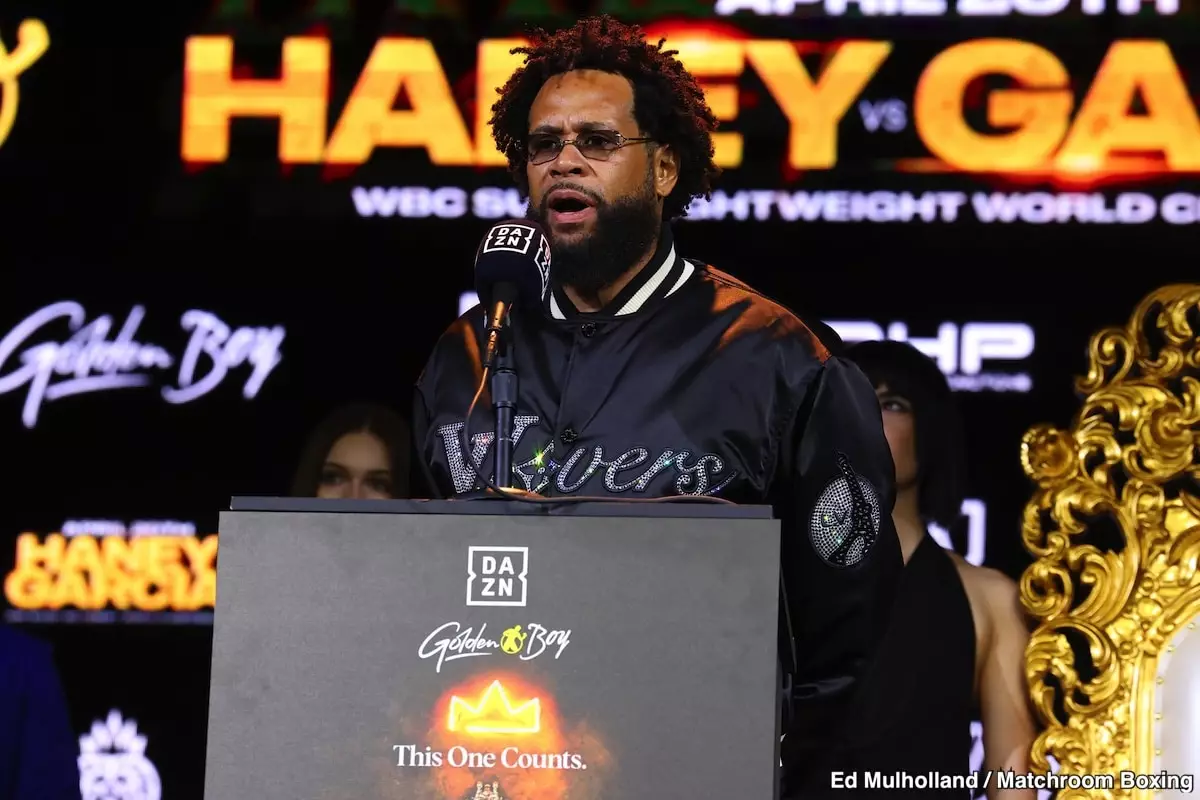In the world of professional boxing, the lines between triumph and tribulation often blur, as evidenced by the recent lawsuit filed by Devin Haney against Ryan Garcia. This situation not only highlights the contentious nature of disputes within the sport but also shines a light on the intricacies involved in the business side of boxing. Bill Haney, Devin’s father and a significant figure in the sport, has publicly addressed the lawsuit, asserting that such legal battles are an expected part of the boxing business. However, the implications of this particular suit might extend beyond mere contractual disputes, delving deep into reputation, integrity, and financial ramifications.
The Context of the Lawsuit
The background of the lawsuit—stemming from Ryan Garcia’s positive test for the banned performance-enhancing drug Ostarine—adds a layer of gravity to the conflict. The incident occurred after their bout on April 20 at the Barclays Center, a fight where Haney suffered notable physical and reputational blows. Despite the outcome initially being a majority decision loss for Haney, the New York State Athletic Commission later revised this result to a no-contest, allowing Haney to reclaim some semblance of his previous status. However, the damage inflicted on his reputation has proven to be a double-edged sword.
Bill Haney pointedly questions the grounds on which Golden Boy Promotions, Garcia’s promotional company, was awarded $1 million in damages. His statement raises an essential question about profitability and losses in the boxing industry: When a fighter is subjected to a setback like Haney experienced, what constitutes justified damages? This query not only highlights the contentious financial relationships between fighters, promoters, and regulatory bodies but also reflects the often detached nature of promotions whose profits are generated independently of the fighters’ physical and emotional tolls.
In a sport so inherently tied to individual reputation and persona, Haney’s allegations of “battery, fraud, and unjust enrichment” signify not merely a pursuit of financial reparation, but a fight for vindication. The lawsuit outlines how Haney feels the ramifications of their bout extended beyond the ring, tainting his image and undermining his standing in an industry that thrives on public perception. It is essential to note that these accusations also convey a larger narrative about the boxing world—one entrenched not just in the physical sport itself, but also in the business dealings that dictate the flows of money and reputations.
Bill Haney’s reference to Hall of Fame promoter Bob Arum as being shameful for advising fighters against litigation reveals a candid acknowledgment of the sport’s adversarial nature. While some may argue that lawsuits detract from the “noble” spirit of boxing, the reality is that they are a cold, hard fact of the industry. Fighters often find themselves up against powerful promotional entities that dominate media narratives and, ultimately, their livelihoods.
From a financial perspective, the lawsuit’s outcome could potentially reshape the future for both fighters. If Haney prevails, the implications could be enormous, especially considering Garcia’s capability to draw large audiences and revenues. With the potential for a hefty settlement award on the table, one must ponder the ethical ramifications of valuing personal integrity against financial gain. Boxing has never accurately reflected the renowned gladiatorial spirit; instead, it often mirrors a deep-seated business ethos that prioritizes income over athletes’ humanity.
As Bill Haney noted, the tumultuous relationship between fighters and their promoters often leads to tangled legal confrontations. Their court case is not merely about personal grievances or financial reparations but represents a critical examination of integrity and accountability within a challenging industry. Navigating the complexities of lawsuits, reputational repair, and the need for financial security is a bitter reality for modern athletes, underscoring the fact that in the boxing world, the gloves are often off outside the ring.
The ongoing legal drama encapsulated within the Haney-Garcia lawsuit illustrates the precarious balance boxers must maintain between personal ambition, business interests, and public persona. With each passing day, the drama unfolds not just as a personal saga, but as a larger commentary on the sport of boxing itself—where success is frequently overshadowed by legal scrambles and the inexorable quest for fairness in a tumultuous industry. The outcome of this case could resonate well beyond the individuals involved, potentially redefining the relationship dynamics between fighters and promoters for years to come.

